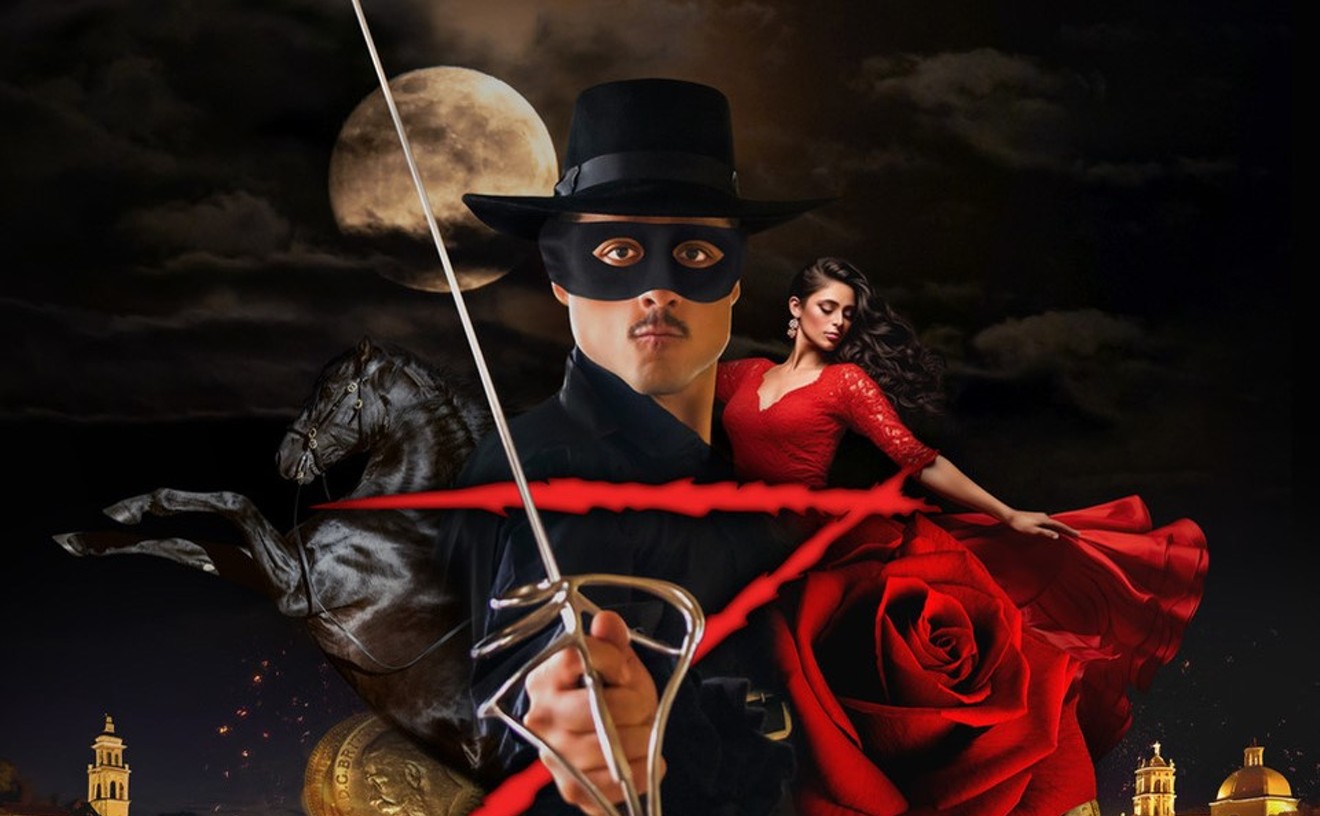Some theatre historians have attributed the decline of theatre to the diminishing stature of the dramatic hero. Greek tragedies centered on kings and gods, Shakespeare's plays on dukes and princes. By the time O'Neill wrote about actors, poets and prostitutes, Miller about salesmen and movie stars, Williams about football heroes, artists and defrocked ministers, drama had descended from the lofty heights of tragedy to the more mundane world of drama, or even melodrama.
With the possible exception of the slight farce Jeffrey, I cannot think of a single significant play about a waiter. That has not deterred playwright Aaron Levy from moving such a background figure to center stage in his new play One Man's Dance, in its world premiäre by Arizona Jewish Theatre Company. If your idea of a compelling evening in the theatre is to hear menu descriptions of exotic appetizers like "The Awesome Onion" or to empathize with the agonies of being left a 50-cent tip, this play is made to order.
If you prefer your dramatic situations half-baked, you may salivate at this story of a food server who dreams of being a filmmaker. If your idea of wit is: "I quit the debate club because it seems stupid to join a club just to argue," then tie a napkin under your chin and chow down at Herberger Theater Center.
As we learn from the awkward exposition, "It's about a guy 27-28 years old and he's on a journey." Unfortunately, in this play, that means the hero will ultimately end up on a Greyhound bus, because anything that is mentioned metaphorically is sure to become literal. If a food server who has legs that begin at her neck confides that she once played Emily in Our Town, you may be sure before the evening is over, black umbrellas will appear at a funeral.
Our hero, Ira the waiter, is the son of a rabbi. He has submitted his film (although the camera depicted is a camcorder) to a film festival in Vancouver, and he is now requesting eight days off from his job at the restaurant--allegedly in Phoenix--to attend the festival. We learn painfully slowly that this is his first day back at work since "the incident." It turns out he has spent two weeks and a day in the "loony bin." After eons of abstract dream sequences, we learn that his one true love, Rebecca, had decided to abort their child-to-be and fly to what surely would be a better life in L.A. Rushing out of his life, she met a tragic accident on the highway, thereby giving rise to the most gratuitous character I have seen on the stage in a long time: the unborn child who might have been, clutching a gigantic teddy bear and wheedling her father who never was for a bedtime story about "Dot the Astronaut."
The thin moral progress of the title character starts with his not knowing how to dance and ends with his finally embracing his sweetheart after her death in a waltz about the stage. The presumed charm of this play requires us to find schizophrenia kooky but understandable. The author satirizes subjects as penetrating as two customers sharing one "Awesome Onion" and requesting separate checks. When Ira tears their check in half, the author expected big yuks.
A principal entree at the Hollywood Beastro (a typical pun that demonstrates the wit of the author) is the "De Niro burger." The De Niro features a meat patty smothered in blue cheese. By the second act, someone will say her favorite actor is Robert De Niro: "Sometimes he's fat, sometimes he's skinny; now that's acting, if you ask me." Another customer will raise hell that she ordered the De Niro without the blue cheese.
That's meant to be funny. Get it? Me neither.
The dialogue is persistent if not insightful, with this "joke" recurring three times:
"I live in Tempe." "Oh, I hear that it's six degrees cooler in Tempe than in Phoenix."
In what passes for insight, Phoenix is described as "Cleveland with palm trees." Here's a piece of poetry: "Why does God make rain smell so good?" And philosophy: "We're going to get married and discover some kind of order." The most pressing question of the evening is whether Ira's inner demons will drive Ira crazy before he drives the audience crazy with his pedestrian problems. Straining for profundity, Ira's dad confides, "People are not built to deal with the mechanism of death." Ira whines, "First the Holocaust, and now Rebecca!" Waiter, bring me a barf bag.
Ira morosely recalls, "Every night, she'd brush out all her hair," leaving the audience wondering at the image of a bald ingnue. "Now her brush still has her hair in it. Should I just throw it out?" My advice: Throw the whole play out.
The production, directed by Mark DeMichele, is so much sleeker than the play deserves. The director tries to squeeze laughs out of two fat guys jiggling as they dance, or from the exposed navels on rotund chefs who wear shrunken tee shirts and ridiculously tall chef's hats. Jeff Thomson's set gives us something to occupy our attention through the long stretches of disbelief, even though we are often only wondering whether the actors will be able to negotiate the steep rake and the jagged edge of the stage without falling off. That provides the evening's sole suspense. "Costumes based on design by" Gro Johre is a credit I have never seen before. It's as if to follow through on her concept was too much for her.
Of the actors, only the wonderful Bob Sorenson finds a variety of flavors in his characters, and delivers a delicious performance. Kimberly Cook is the long-legged, winning Kelly, whose only flaw is a strident tone, perhaps appropriate for her role as a transplanted Texan. Scott C. Jeffers, as Ira, is finally affecting in the penultimate scene of madness, although he totally lacks the magnetism that Tom Hanks brings to Forrest Gump. All in all, this dramatic confection could make Phoenix audiences anorexic for the remainder of the season. Marshall W. Mason has won six Obie Awards for directing work by playwrights Tennessee Williams, Lanford Wilson and Jules Feiffer. He is now associate professor of theatre at Arizona State University.










